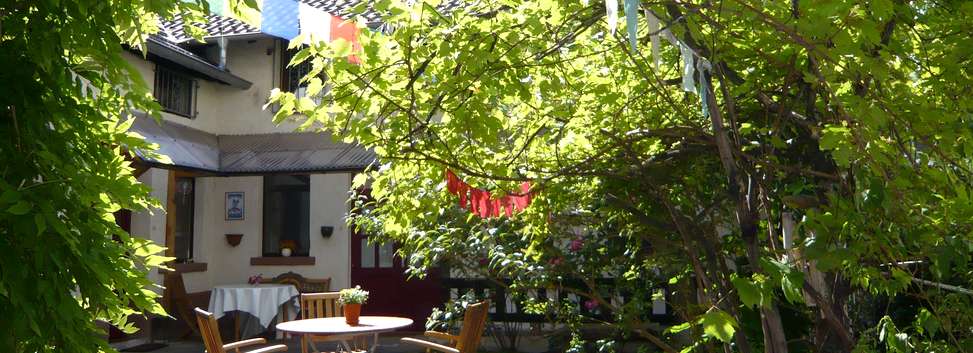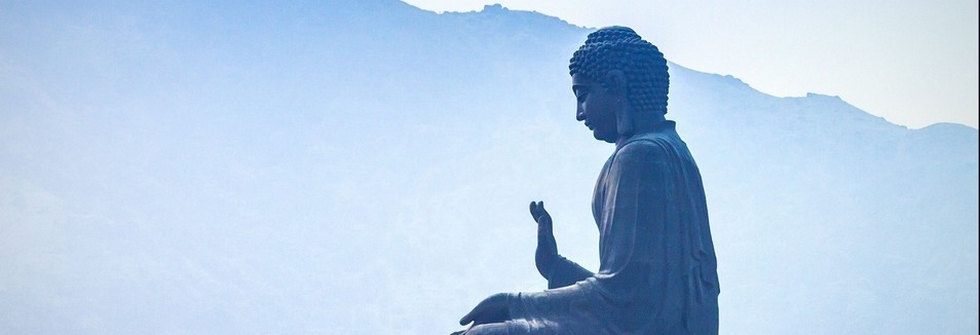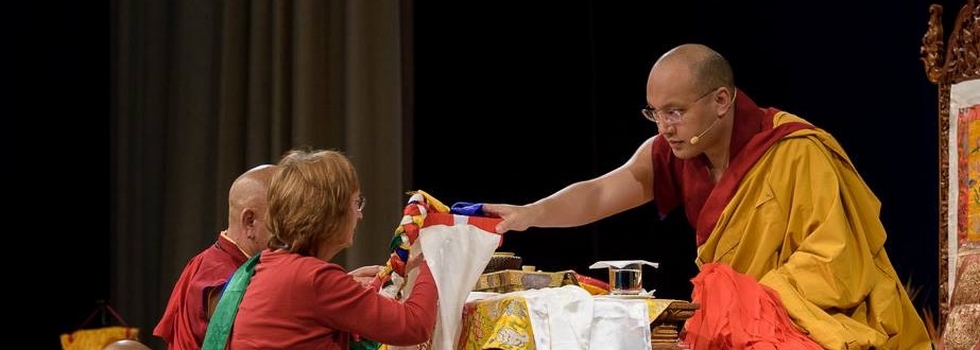Animal Release
Venerable Khenchen Thrangu Rinpoche
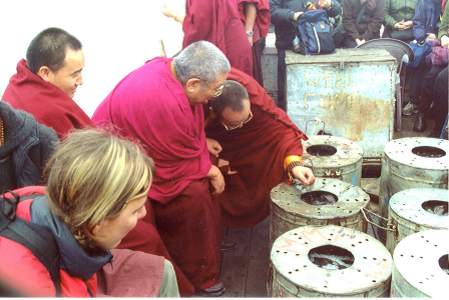
In general, we study karma, the law of cause and effect, in Buddhism. The principle of karma is that if you commit non-virtuous actions you will have bad results and if you engage in virtuous actions then you will have good results. The ten non-virtuous actions can be classified into ten different categories and the opposite of these can be classified into the ten types of virtue. The first non-virtuous action is the worst, the strongest, and that is to take life, then after that is to take that which is not given or stealing; committing sexual misconduct is another harmful action. These are the first of the bodily non-virtues.
Of the ten non-virtuous actions, really the worst is killing. And the opposite is saving lives. From among all the things one should abandon, first you should abandon killing, and the most important virtue to practice is to save lives. By saving lives you accomplish great virtue; you can protect beings and you can save them from fear.
So because of this, of the ten virtues - saving lives or protecting lives - we can either save the lives of humans or that of animals. My teacher in Kham, Khenpo Gangshar, taught me that among these two - saving the lives of animals or of humans - saving humans is not as powerful and the reason for this is that man can speak for and help himself, he or she can do things to improve their situation " we have ways to help ourselves. But animals, on the other hand, are really lost for means to help themselves, they cannot say anything to anyone and they cannot protect themselves from being eaten and tormented, and that is why saving the lives of many animals is really very important.
Now, from among the many different types of animals, in particular fish in oceans, lakes and streams and birds in the sky have neither a lord nor a master - they have no protector, they have no refuge - and so in order to benefit them we buy fish or birds at the market and set them free. That is how we can accomplish the first great virtue, that of saving lives.
Fish on sale at markets all over the world are usually trapped in iron buckets. Also, many, many fish are stuffed and tightly packed into small caskets " no single fish can move and they really have a very difficult time; it is terrible for them and they experience unbearable suffering. And so, after we have bought the fish, we simply lift them out of the containers with our hands and heedfully place them in the ocean or stream again. Then we watch them swim off " it is as though they have been set free from prison. And while we release the fish we make prayers for the Lama's long life, we make prayers for the long lives and happiness of all sentient beings, in particular we make prayers for the long life and happiness of those who sponsored the event, that the fish be set free, and in this way tremendous virtue is accumulated. Furthermore, there is the benefit of bringing blessings to these animals. In general, in their current state they aren't able to listen to the Dharma, they are't able to practice meditation, they ca't really see the body of a Buddha. But through the experience of having been released " through the blessings of this act " in the future they will experience freedom from samsara. That is how it brings them tremendous benefits and blessings.
Thank you very much.
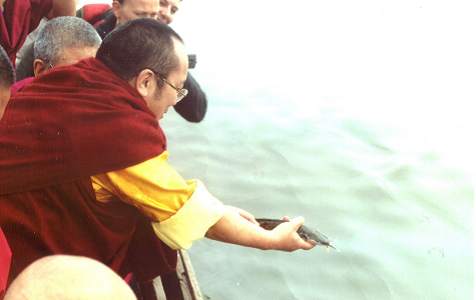
Publ. as The Merit from Releasing Live Animals by Thrangu Rinpoche, in: Thar Lam, N.Z., August 2004, p. 63. Web broadcast by World Tibet Networks, Canada, October 17, 2005, no. 8, p. 10-11.Translated from Tibetan by David Karma Choephel, transcribed and edited by Gaby Hollmann. May virtue increase!






